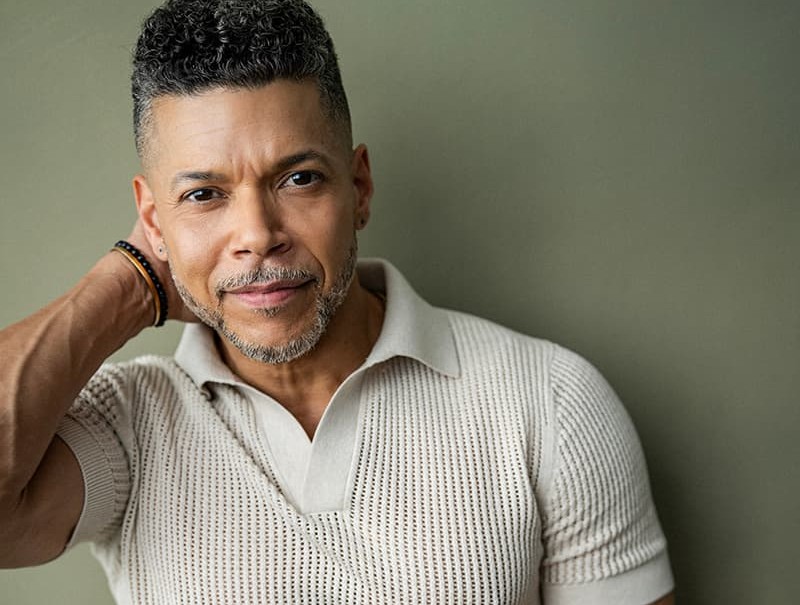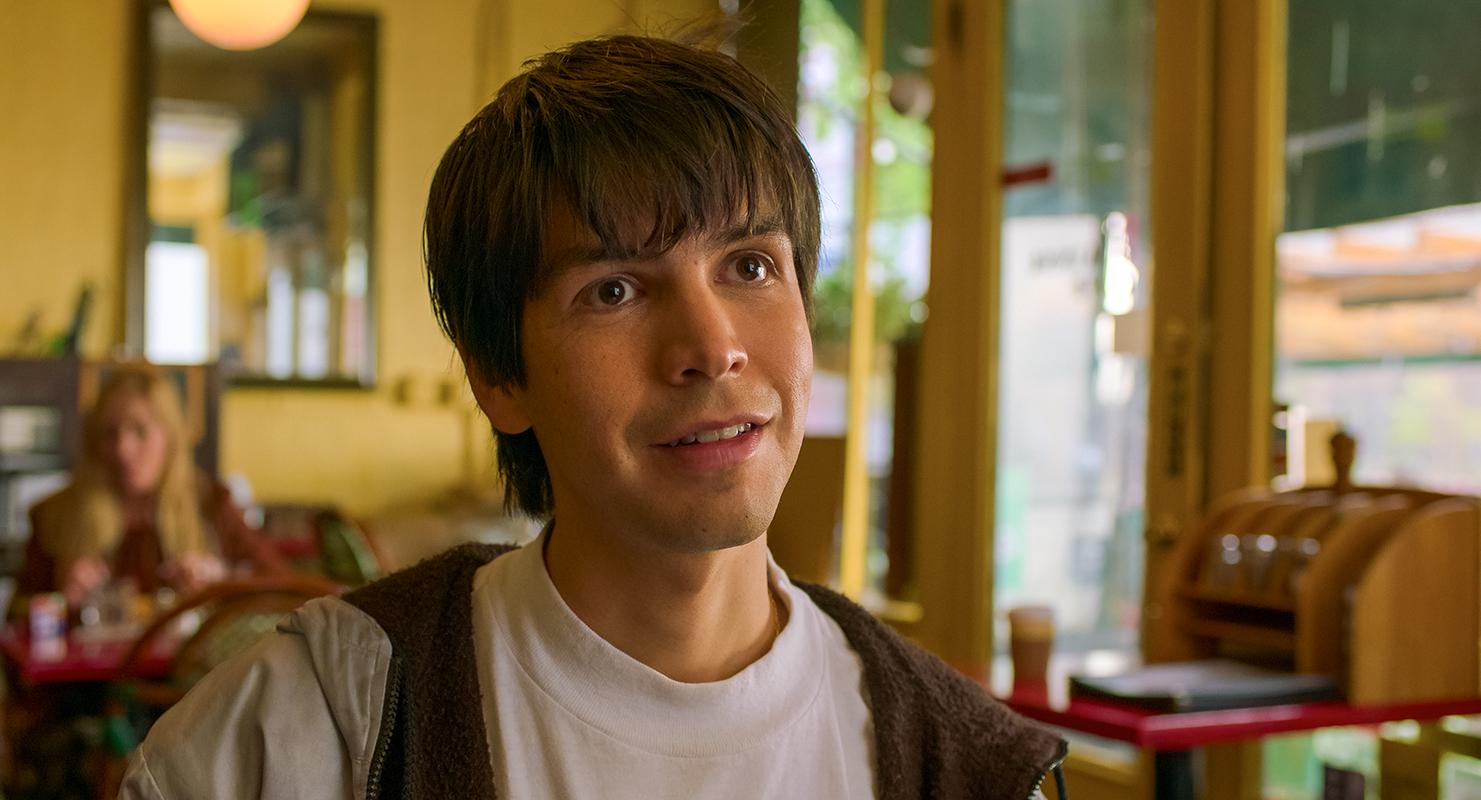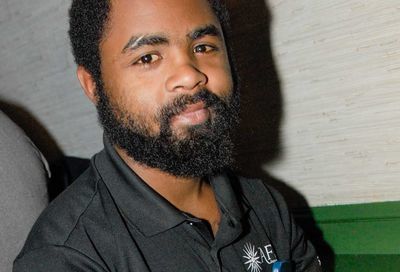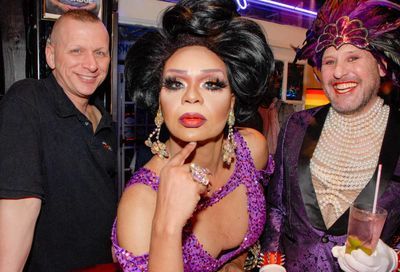Being Vocal
Patti LuPone isn't difficult. She's just the ultimate perfectionist, on and off the stage
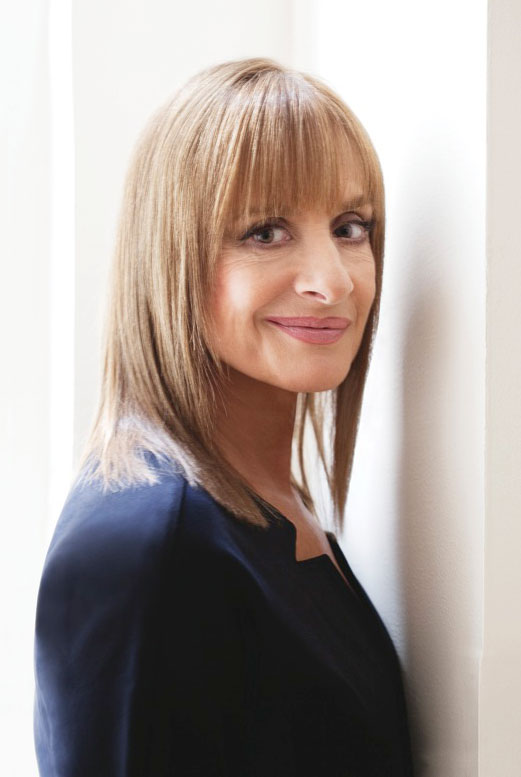
Patti LuPone
(Photo by Ethan Hill)
MW: What was your experience like with it?
LUPONE: It was my first television experience and I had a hard time with the writers. I thought that they could have done better. I thought they were slightly cowardly at times when they could have been more courageous, that’s all I can say. It’s just my take on things. I’m a risk-taker.
MW: Who are today’s risk-takers in your view?
LUPONE: Ryan Murphy is a risk taker. The people putting Homeland on are risk takers. I mean, why else do it if it isn’t dangerous and you’re not presenting ideas that really cultivate, stimulate, change somebody? What’s interesting is, in the television world, there’s too many people making decisions. You have studio executives, you have network executives, you have executives on the show. So there’s a lot of people who have a lot of opinions. But if everybody’s on the same page, then some of the product that gets out there can be powerful stuff.
MW: You’ve been cited by the press at times as being difficult. But wouldn’t it be more apt to consider you a perfectionist?
LUPONE: My concern is for the audience – always. If I’m not a perfectionist, we’re not doing the most we can to deliver to an audience.
MW: It sounds to me like you confront and challenge whatever it is you’re working on.
LUPONE: Yeah, well, I would hate to be bored. And if I’m not bored, I don’t think the audience is going to be bored. And I certainly don’t want to bore the audience. My God, I’ve been onstage when audiences are bored.
MW: How can you tell?
LUPONE: Oh, you can tell because there’s a lot of fidgeting, people leaving, you know. One of the most exciting things about live theater is the deafening silence. When there is a deafening silence, you know the audience is having a collective experience. They are on the stage with the actors. They are involved.
MW: Otherwise, they’re getting up and walking out.
LUPONE: Yes, or texting. [Laughs.] Or doing something other than concentrating on the stage.
MW: What is it like to be on the stage and suddenly people get up and leave? What goes through your head?
LUPONE: It depends on why they’re getting up and leaving. If it is a point of view on the stage that they totally disagree with, they have every right. If it is out of boredom, then we’ve failed. If it’s a lousy production and lousy acting, they have every right to leave. They have every right to demand their money back, quite frankly. If it’s because they came to the theater as an obligation to their wife and are just kind of self-absorbed, then please don’t come to the theater. Do something else with your time. Go to a skating rink.
If they’re not there to partake in the theatrical experience, they’ve wasted money and that’s their problem, but it does affect an audience when people are not conscious of the other people in the theater. It affects everybody. Once those lights go out and the stage lights come on, it is a communal experience. And we’ve lost our public manners. Let’s say a minority of people are living in their own little bubble without being aware of the people on their right, their left, their front and their back – and that may be true in life as well. But it’s especially poignant in the theater because it’s a place – it’s like a church. Your eyes are trained on the stage, and you are listening to the storyteller, and any disruption is a disruption in the storytelling. If they’re not involved because they don’t like the story and they choose to get up and leave, good for them. They’ve made a point. But if it’s because they’re not there to start off with, don’t come. Don’t come to the theater.
MW: Part of the problem actually goes back to television. We’re so used to consuming media in our own homes that we don’t think of any communal experience the same way anymore. We have become consummate interrupters.
LUPONE: Are we that unconscious as a people? Are we that oblivious to the stuff around us? If that’s the case, we’re screwed. I mean, I can’t imagine that people would behave that way in a church. Possibly they do. And possibly they behave that way in a museum. And any other place that requires respect for the people standing next to you, that requires silence.
We’re living in a world that is tilted, and it’s a very scary and sad and lost place. Look what happens. Those extremists who made that video. If they did have an idea of the ramifications and it was intentional, lock ’em up. I’ve always said there has to be a boundary to freedom because a total freedom is anarchy. And I think we’re approaching anarchy. We’re desensitized. We are all desensitized – well, desensitized or terrorized – and I am terrorized. I think there are people who are desensitized and who don’t think about the consequences of their actions.
MW: What do you think is the cause of that?
LUPONE: Religion! [Laughs.] Religion is the evil. What else is it? I don’t know. I don’t know. I have no idea, except maybe it’s the Internet. Maybe it’s the anonymity of the Internet that allows one to express themselves and not think of consequences, or think that they’ll get the result they want and not be held responsible. I really don’t know because it’s all so new. I don’t know, I don’t know, I don’t know. I hope these guys are in some way punished for what has happened. And I don’t know where you draw the line because yes, free speech – blah, blah, blah – but at the same time there has got to be responsibility. I know I’m contradicting myself, but I think we’re in a really, really scary place and the world is tilted. I think we need a global time-out.
MW: Somehow we got from talking about audiences in the theater to –
LUPONE: Because I think it’s all the same thing. You talk about people walking out of the theater, and I think that we have forsaken certain human qualities – and the one that I see is respect for one another. What I see over and over again in the theater is the self-entitlement and a lack of respect. And that can be applied to people who are irresponsible in a message that they put out.
MW: You have a son in his early 20s. Do you worry about what our world is headed toward for his future?
LUPONE: It’s all I think about.
MW: In the best possible scenario, what do you want for him?
LUPONE: Happiness. And peace on earth, good will to men and understanding and respect for all cultures and religions. And his ability to learn and thrive.
MW: What do you want for yourself?
LUPONE: I want to be able to continue to do what I’m doing and not worry about it. And in the overall scheme of things, I don’t want to be terrorized anymore. I really do wish our country would take a step backwards and go home. I’ve always felt America should be an isolationist country, but it’s too late for that. We’re not best friends with our neighbors. How about we become best friends with Canada, Mexico and South America and call it a day? Let’s trade with them and just let everybody else deal with their own issues. I really wish America would come home.
MW: That’s not very likely.
LUPONE: Well, we’re going to have to bear the consequences of that, then.
MW: We can’t just ignore the rest of the world.
LUPONE: I don’t mean to not be interested in the rest of the world, but I don’t think our military power should be wielded anymore. I think we should come home and if [the rest of the world] needs our military for help, for aid, for humanitarian effort, that’s where I would put my strength. We have so much blood on our hands. We have so much blood on our hands.
You know what I think? Why aren’t we the humanitarians? If we are the richest, most powerful nation, why aren’t we the humanitarians? I’ve always thought the thing that makes the most sense in my mind and the thing that everybody around the world wants is our pop culture, our science and technology. Pop culture, and our science and technology. That is our strength.
We have been force-fed consumer products, and what we are hungry for is a new iPhone and the new iPad, and we don’t have to concern ourselves – we’re not hungry, we have everything, we’re surrounded by our lovely things, and the minute we’re not surrounded by our lovely things, we will be politically hungry. You see that all over the world.
You know, wherever I travel, I do not see the wealth that we have in this country. You see it in England and France, of course, but you do not see it in other parts of the world – and they are more politically astute in those countries. We’ve just lost it because I think somewhere along the line – I suppose to keep the masses down, I don’t know what – we’ve been trained to want more consumer products.
I think that is probably why I want more guerilla theater, more political theater, because I do think – if ticket prices were much, much, much, much lower and you had more political playwrights espousing their ideas, any ideas, put ’em all out there, educate me – well, that’s what theater is about. One aspect of theater. The other aspect is ”entertain me.” But also educate me. We have turned into a bunch of cowards. [Some] producers have turned into cowards. And kind of rightfully so, because who knows who’s got a bomb out there? It’s just so fucking scary. It’s a scary, scary, scary time, and I suppose putting a political idea on the stage would be equally as risky as taking a plane over to Algiers. However, no pain, no gain. No risk, no glory.
MW: You make some compelling points. We only have a few minutes left, so I need to ask you my obligatory gay questions. This is a favorite of mine to pose to straight celebrities. Do you remember the first time a gay person came out to you, what the circumstances were, and how you reacted?
LUPONE: He didn’t come out to me because we were about 6 years old, but I knew Philip Caggiano was different. And I think I knew he was gay. But not gay in the way we use gay now. He was different. He was flamboyant. I was standing in his driveway and I looked at him and went, ”This guy is different. I like him.” [Laughs.] So I was aware very early.
MW: What has your gay following meant to you?
LUPONE: It gives me credibility. Not that the straight people don’t give me credibility, but I find that the gays are just more vocal.
MW: Finally, how do you feel about the things that have happened in the past year for gays in this country?
LUPONE: I think it’s fabulous! As a matter of fact, I threw a wedding on my press agent when he got married to his partner. I said, ”I’m throwing you the party.” Hon, it’s just love. It isn’t war. What have we been talking about here? We’ve been talking about war. It’s love. How can anybody deny that? Love is what we need more of.
Patti LuPone performs Matters of the Heart on Friday, Oct. 5, and Saturday, Oct. 6, at 8 p.m., at The Music Center at Strathmore, 5301 Tuckerman Lane, North Bethesda. Tickets are $45 to $85. Call 301-581-5100 or visit strathmore.org.
Support Metro Weekly’s Journalism
These are challenging times for news organizations. And yet it’s crucial we stay active and provide vital resources and information to both our local readers and the world. So won’t you please take a moment and consider supporting Metro Weekly with a membership? For as little as $5 a month, you can help ensure Metro Weekly magazine and MetroWeekly.com remain free, viable resources as we provide the best, most diverse, culturally-resonant LGBTQ coverage in both the D.C. region and around the world. Memberships come with exclusive perks and discounts, your own personal digital delivery of each week’s magazine (and an archive), access to our Member's Lounge when it launches this fall, and exclusive members-only items like Metro Weekly Membership Mugs and Tote Bags! Check out all our membership levels here and please join us today!




